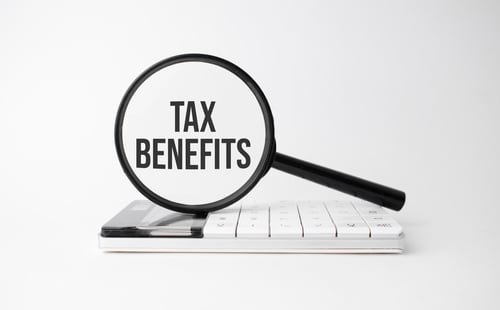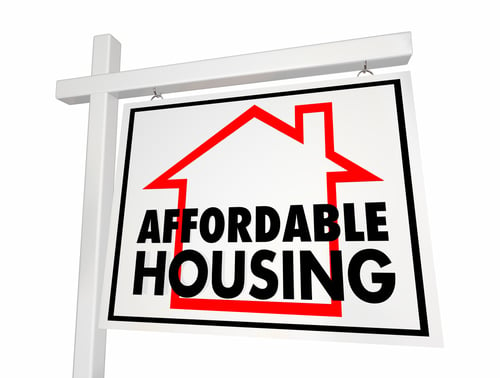What are Low-Income Housing Investments?
While most real estate investors look for “nice” properties to invest in, some opt for low-income housing investments instead. As a result, investors can purchase affordable housing properties and create living solutions for families while also making a generous profit.
If you are curious about affordable housing investments and how they work, just keep reading. Below we will discuss LIHTC, who qualifies for low-income housing, and how landlords can benefit from low-income housing investments.
What is the Low-Income Housing Tax Credit?
The low-income housing tax credit (LIHTC) program was created in 1986 and works to subsidize the construction and rehabilitation of affordable rental housing. The program’s purpose is to stimulate low-income housing investments in disadvantaged urban and rural communities. That said, the Housing Credit provides low-income families with a safe and adequate place to live at a reasonable price.
The federal government issues tax credits to state and territorial governments for the Housing Credit to work. From here, through a competitive process, state agencies award the Housing Credits to affordable housing developers. Developers usually then sell the credits to private investors to fund the construction and rehabilitation of affordable housing projects.
The Low-Income Housing Tax Credit currently finances around 90% of all modern housing development projects, making it a vital federal resource. However, before we go over who qualifies for the Housing Tax Credit, let’s define low-income housing.
What is Low-Income Housing?
Low-income housing, or affordable housing, creates comfortable living accommodations for individuals or families of low income. Affordable housing opportunities allow individuals or families to live in comfort with rental assistance from the government.
Low-income families, people with disabilities, or senior citizens may qualify for low-income housing. Additionally, students or military service members may also be candidates for assistance. Keep reading as we go over the qualifications for low-income housing.
Who Qualifies for Low-Income Housing?
Essentially, any single person is eligible for low-income housing, whether they have children or not. Similarly, families may also be eligible, whether children are involved or not. However, those interested in signing up for low-income housing should apply to a waiting list in their area. Next, let’s go over a few essential qualifications and some common disqualifiers for low-income housing.
Income Requirement
Each state and community is different, but most applicants who qualify must earn less than 60% of the Area Median Income (AMI) at the time of moving in. This is considered the income limit, but it increases with each additional household member.
Eligibility for low-income housing tax credit occupancy is based on a household’s gross annual income. This is the total amount of money earned by each adult household member per year. Since it’s dependent on individual household income, the process may look different for everyone.
Preferences or Restrictions
Once an individual or family is approved and moved onto a waiting list, they may apply for preferences. Those who qualify for preferences will likely receive assistance before those who do not. Some preferences that most likely will appear on a waiting list first include people with disabilities, the elderly, and residents.
With that, sometimes there are restrictions—for example, a community or large apartment complex that’s only available for the elderly.
Common Reasons For Disqualification
There are a few common reasons why someone would be disqualified for low-income housing. For example, a bad credit report, poor rental history, or providing false information may result in disqualification. Let’s look a little further into the following reasons someone may be turned down:

- Inadequate Credit Report
- Poor Rental History
- Providing False Information
- Criminal History
Inadequate Credit Report
Most likely, all applicants will have to submit a credit report. Although a poor credit score doesn’t mean instant disqualification, a poor credit report may make someone ineligible for low-income housing.
That said, credit decisions differ from property to property. Ultimately, it depends on the geographic area and financial standards of the property owner. In addition, certain credit requirements may differ for various housing situations.
Poor Rental History
When someone signs up for low-income housing, the application may require a list of previous landlords. The LIHTC property manager can then receive contact information for previous landlords and contact them for a reference. If someone has a poor rental history, they may be disqualified for housing assistance.
Providing False Infomation
When applicants file for housing assistance, they should only provide true information on all documents. Providing false information on an application or official document may result in disqualification or even legal trouble.
Criminal History
Applicants with a criminal record may have a more challenging time receiving housing assistance. However, it doesn’t automatically disqualify them. Essentially, it depends on the severity of the crime and the length of time since the offense occurred. For example, recent convictions may make someone ineligible for low-income housing.
How Do Low-Income Housing Investments Help the Economy?
Affordable housing can benefit the economy in a few different ways. First, when affordable housing becomes readily available, there are more opportunities for people of all income levels. On the other hand, when there are only high home prices, the economy can slow down, leaving jobs unfulfilled.
Overall, those who have always had a comfortable and safe space to live may not understand the true effects of poverty. However, the effects are real and can seriously impact our communities. That said, let’s look at a few ways low-income housing can positively impact our economy.

- More Money Spent Locally
- Healthier Population
- More Job Opportunities
More Money Spent Locally
Undeniably, one of the most considerable benefits to low-income housing is increasing discretionary spending. After all, most people consider their rent or housing payment to be the biggest and most important expense to focus on each month. However, when residents have access to affordable housing, they can spend their money on other local purchases without feeling unable to afford food, healthcare, and other necessities.
Healthier Population
Believe it or not, a person’s living situation can directly coincide with someone’s physical or mental health. Alongside other factors like income and education, housing can seriously impact someone’s life. Those that cannot afford a safe place to live may expose themselves to lead paint, contaminated water, or other environmental risks that are less likely to happen elsewhere.
With that, the buildings themselves may not be the only risk. When a home is unaffordable, food, transportation, and clothing are likely unaffordable as well. However, when a family has access to affordable housing options, they can pay for more important things, like local fresh food and healthcare.
More Job Opportunities
One of the other large benefits of adding more affordable housing is increased job opportunities. For example, to start a new affordable housing project, a real estate company will hire manufacturing and construction companies to start building. Then, other employees such as maintenance operations and leasing managers will continue to preserve the property to keep things running smoothly.
All in all, the more jobs there are, the healthier the economy is. Adding affordable housing to deprived communities is a great way to provide new and current residents with more job opportunities.
How Can Landlords Benefit From Low-Income Housing Investments?
Now that you’ve learned about low-income housing properties, you may be wondering– Can landlords benefit from low-income housing investments? The point of low-income housing is to provide safe and comfortable living spaces to those in need. However, investing in affordable housing can be an excellent financial strategy for investors.
Real estate owners receive tax credits while using their property as affordable housing. According to Investopedia, a tax credit is “an amount of money taxpayers can subtract directly from taxes owed to the government”. So essentially, tax credits reduce the amount of tax owed. That said, there are three common types of tax credits:

- Nonrefundable Tax Credits- Nonrefundable tax credits are deducted from a taxpayer’s liability until it equals zero. The taxpayer forfeits anything left over from the credit.
- Refundable Tax Credits- Refundable tax credits are favorable because they are paid in full no matter how much the liability is. If the liability is reduced to below $0, the taxpayer gets a refund.
- Partially Refundable Tax Credits- Some select tax credits are partially refundable, meaning the taxpayer will be paid up to a certain amount if they have a large enough tax liability. The Child Tax Credit or the American Opportunity Tax Credit are both partially refundable.
Aside from the benefits of tax credits, you have a great chance to expand your business portfolio if you are a low-income housing investor. Similarly, you can have the satisfaction of providing safe housing and job opportunities to those who need them.
Looking for Help with Your Investment?
Some investors may turn their heads at the idea of purchasing a property in a low-income area. However, affordable housing projects can be great financial opportunities for landlords or other investors. That said, if you need assistance managing your rental property, consider hiring a full-service property management company.
Bay Property Management Group can help you with all your rental property needs. From tenant screening to monthly rent collection and taking care of accounting matters, the experts at BMG have your back at all times. So give us a call today to begin our professional property management services.

